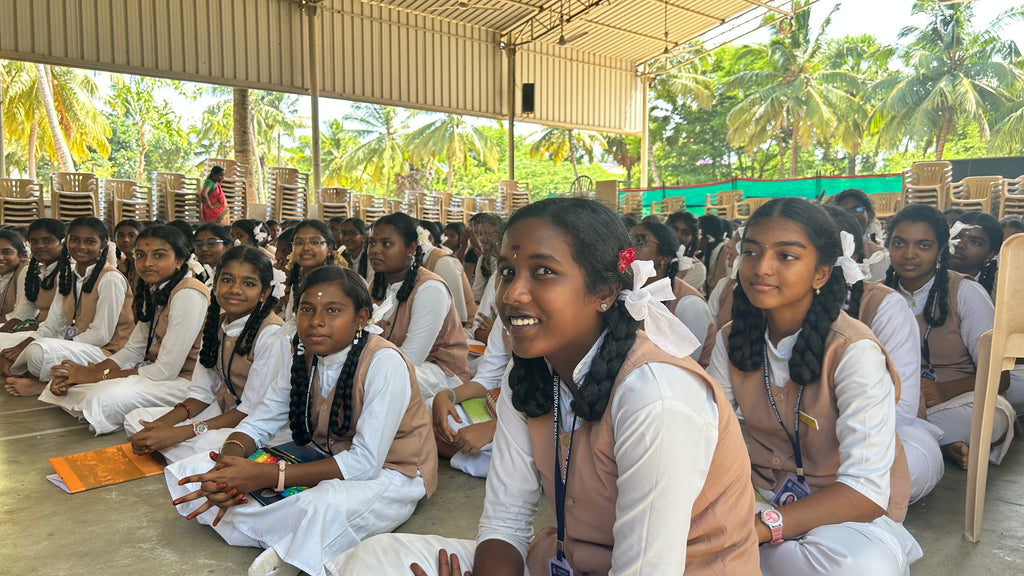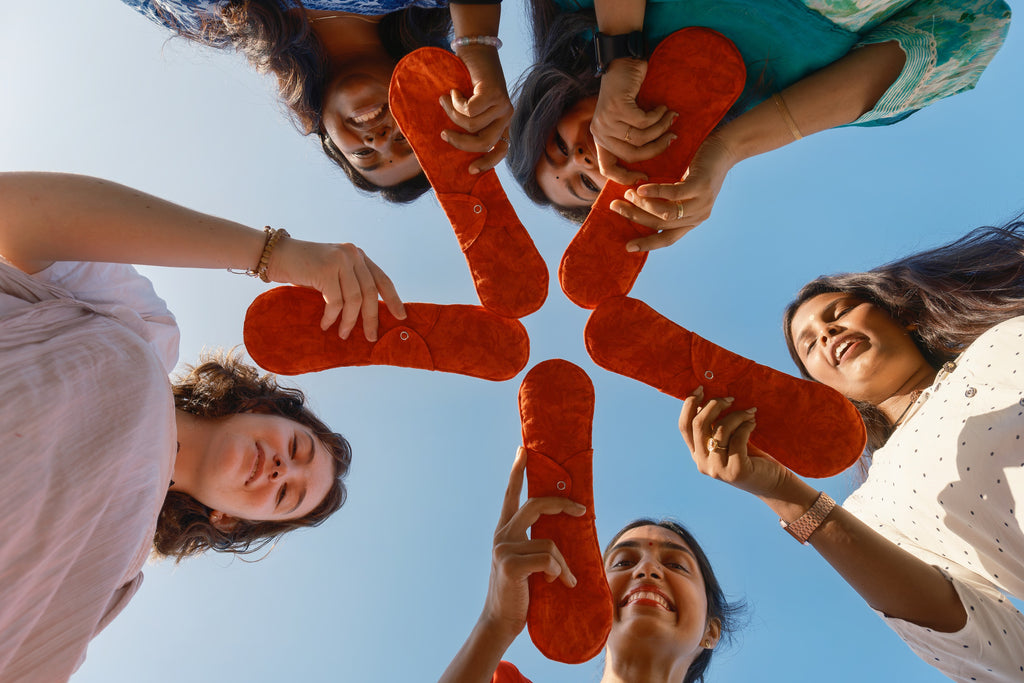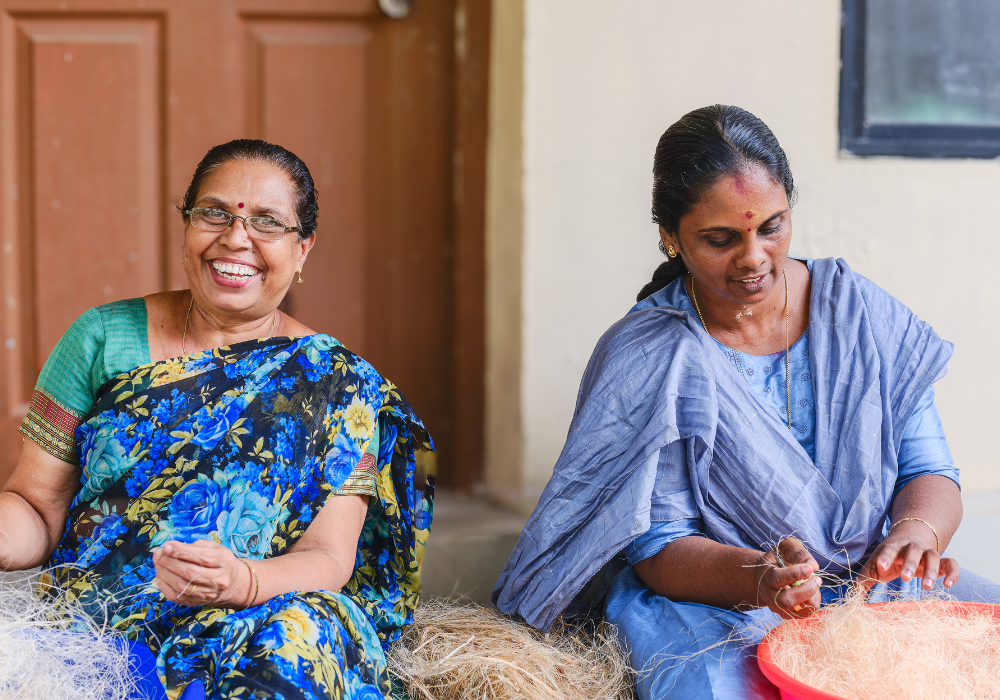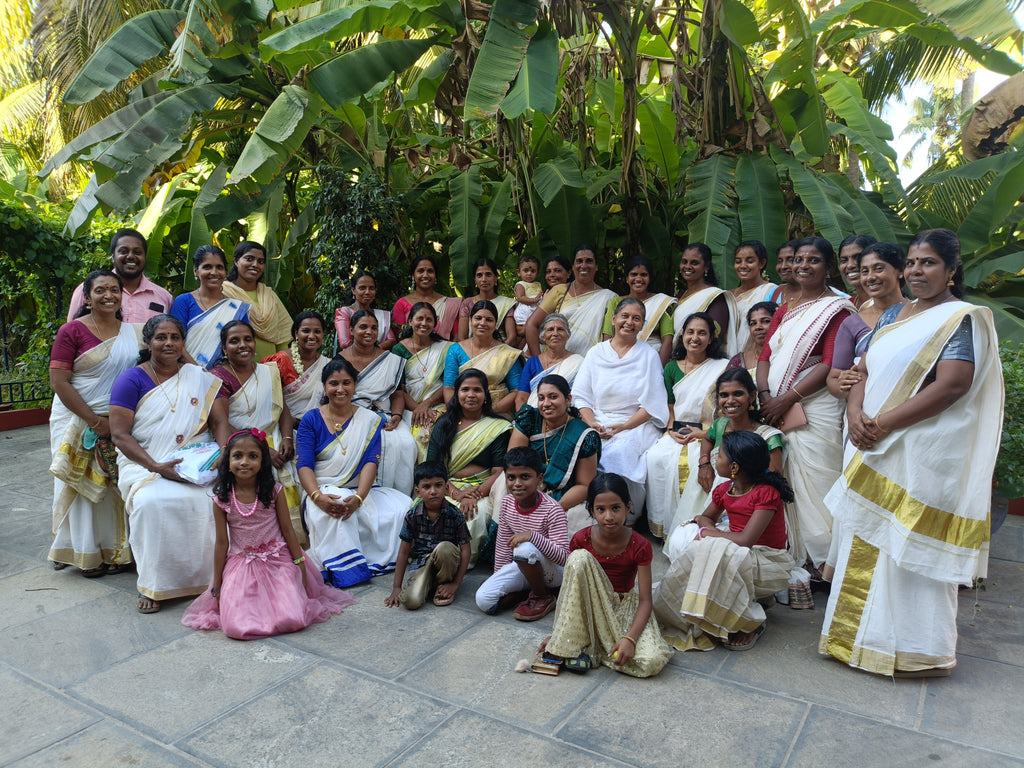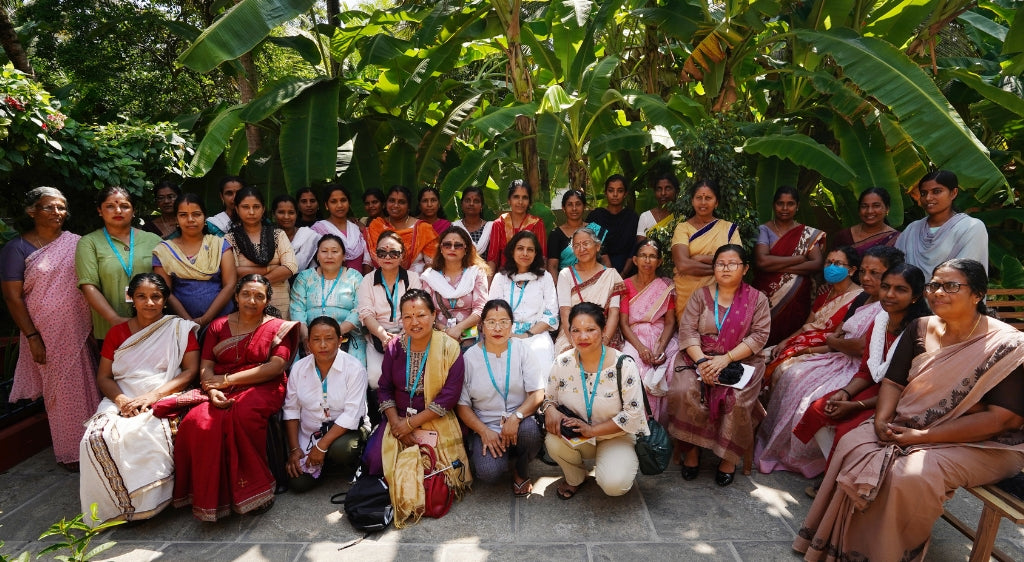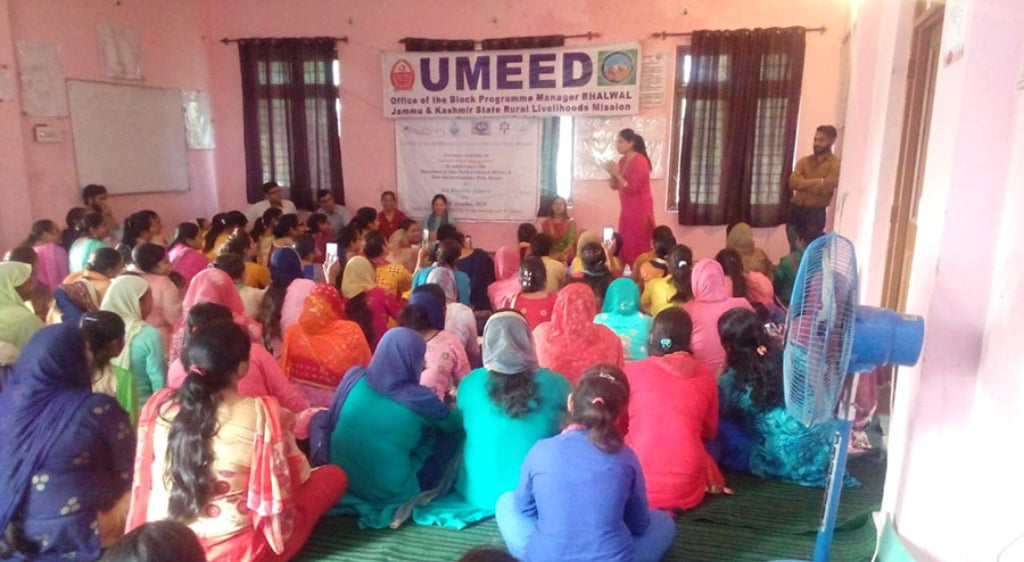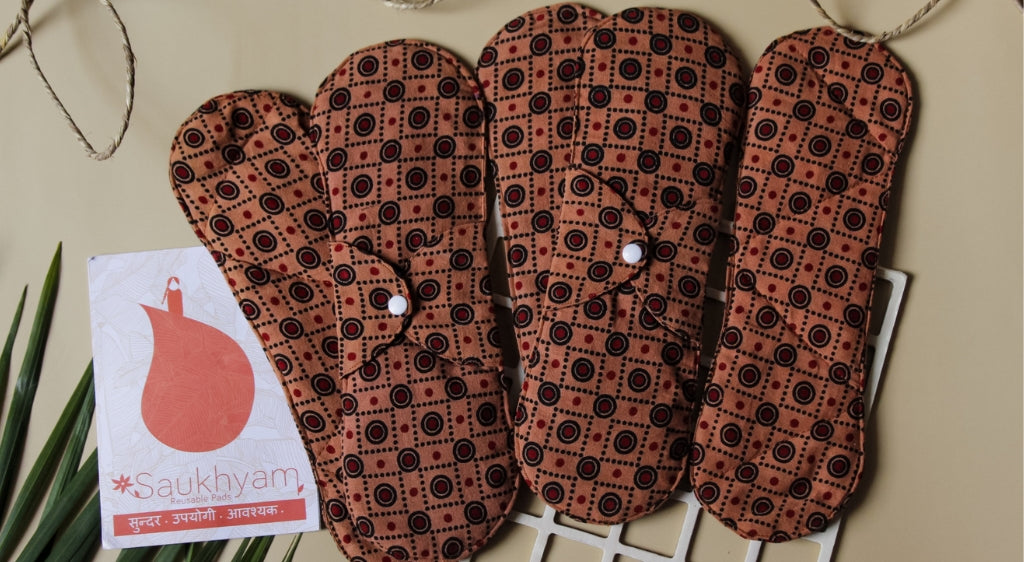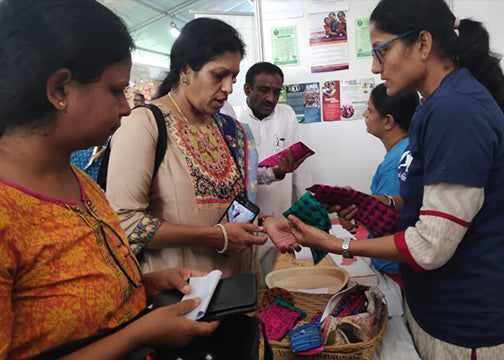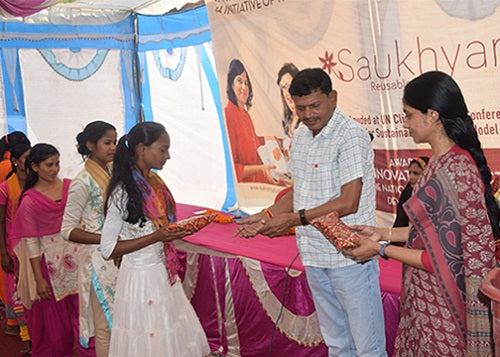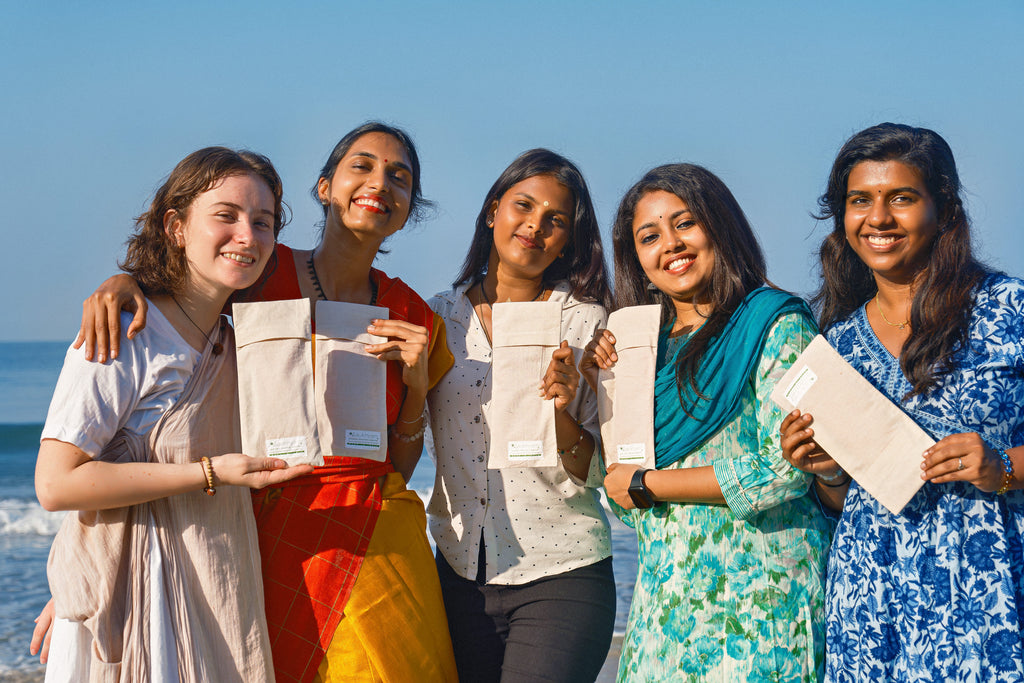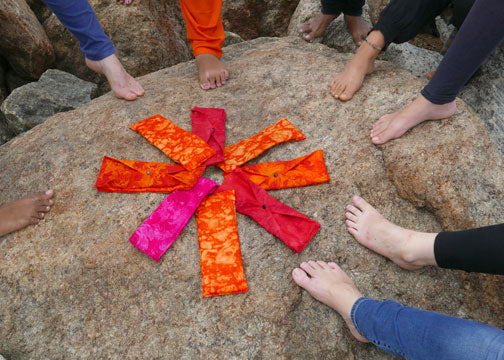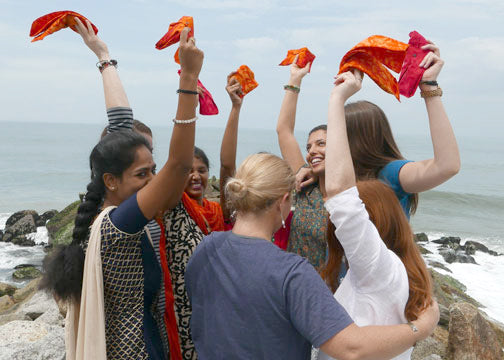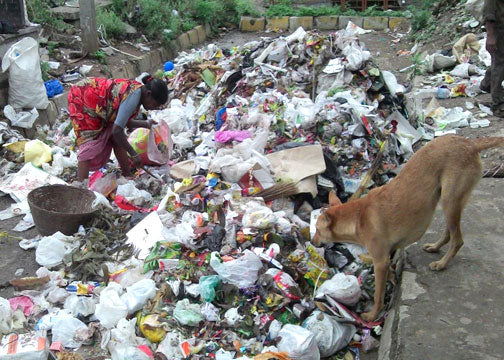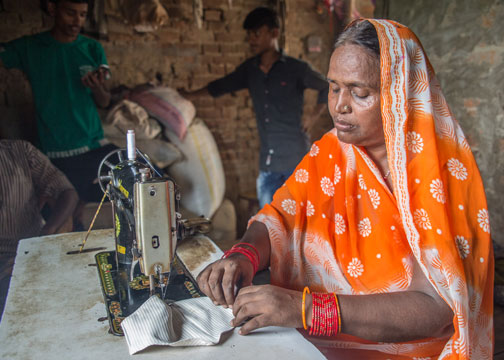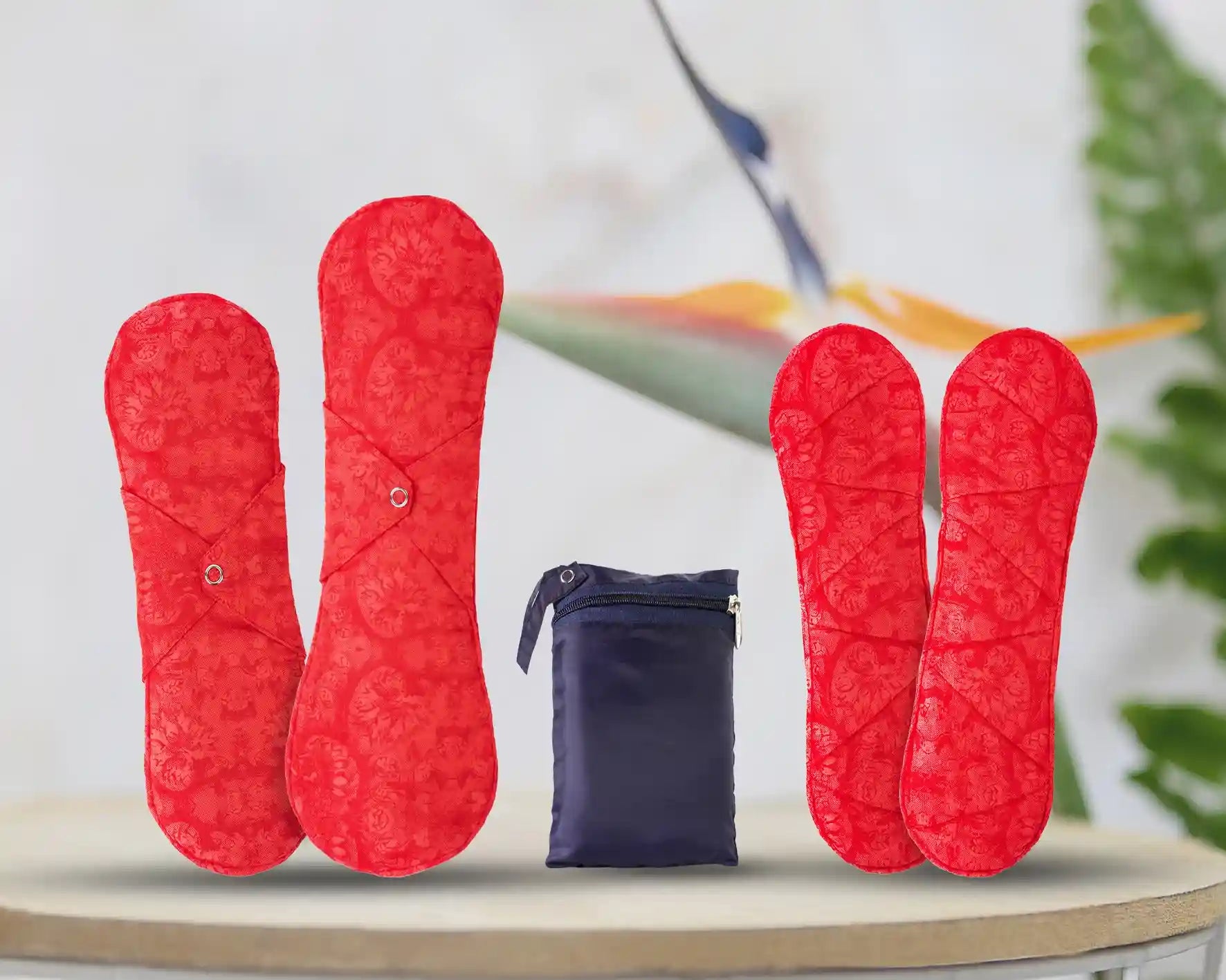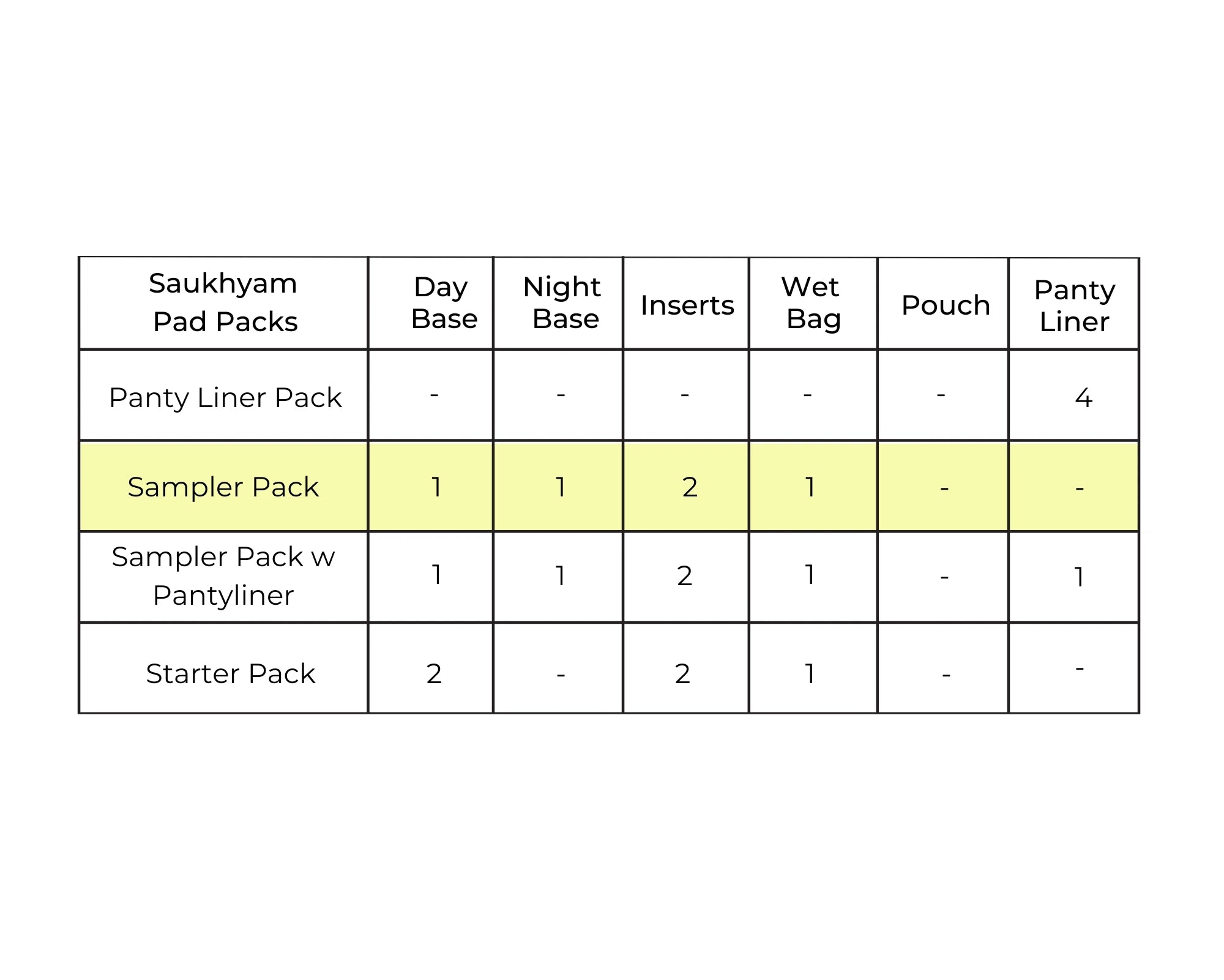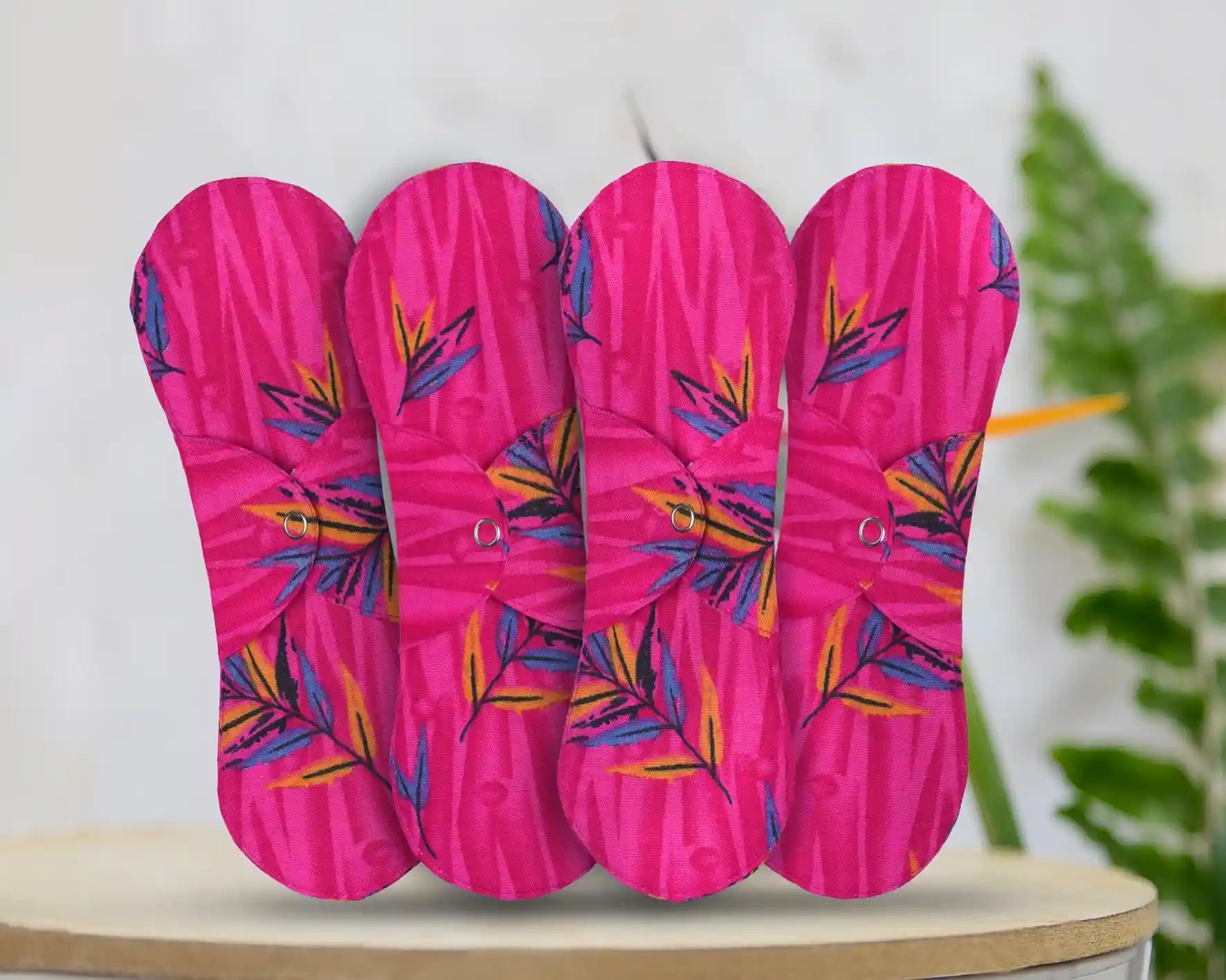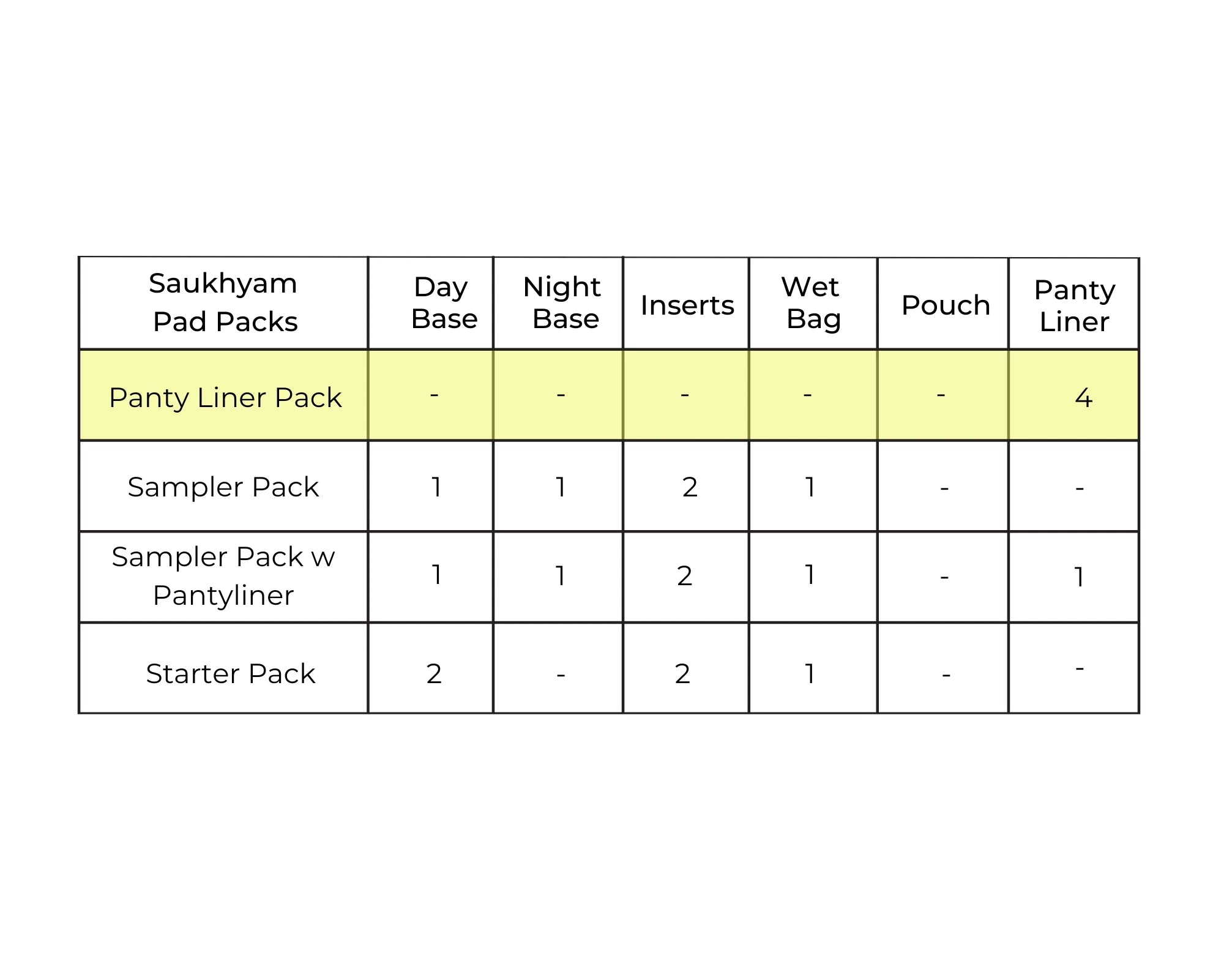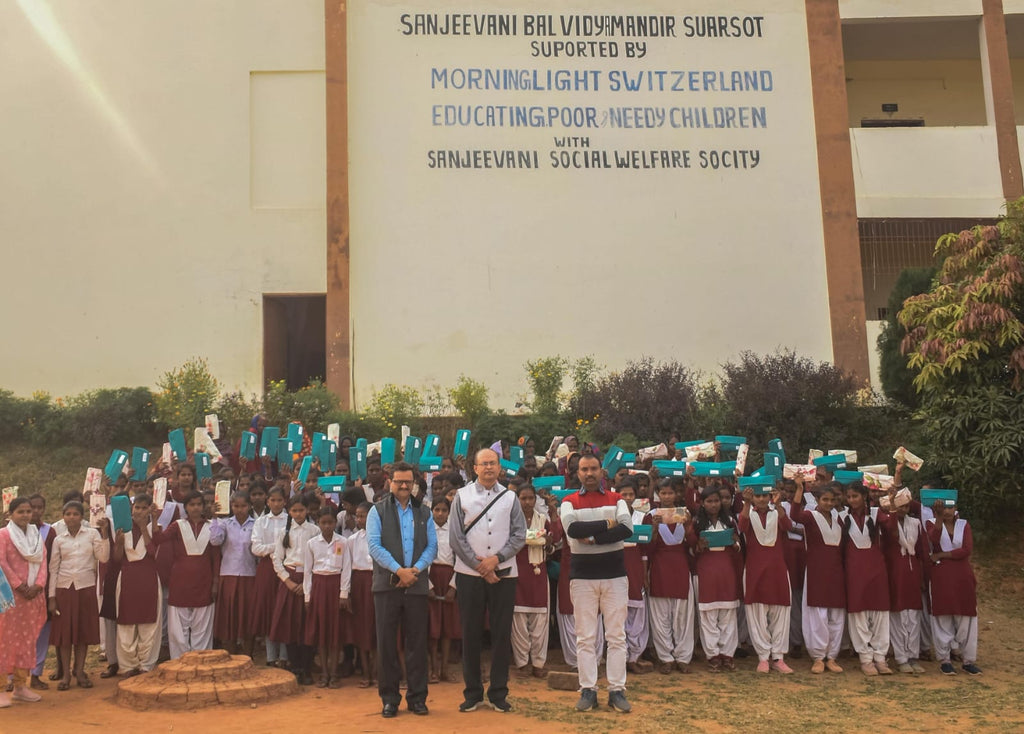
Breaking Menstruation Taboos in Sonbhadra

A Gathering of Change
What happens when women are given safe menstrual products and a space to talk freely? There is confidence, courage and a spark for change. This is a story from Sonbhadra district in UP.
At Sanjivani Bal Vidya Mandir, more than 100 rural girls and women gathered for a menstrual awareness program that changed the way they think about periods. The initiative was organized by Sanjeevani Social Welfare Society in partnership with Saukhyam Foundation.
This residential school for girls from impoverished backgrounds is supported by Morning Lights of Switzerland and Sanjeevani Social Welfare Society.
For many of the participants, it was the first time they openly spoke about menstruation. What began with hesitation soon turned into an engaging and lively discussion.

A Space to Learn and Share
Participants were introduced to Saukhyam reusable menstrual pads through multilingual educational videos. The videos explained in simple steps how to use and wash the pads. This interactive approach helped clear many doubts. Women asked questions about drying, durability and comfort and left with clarity and confidence.

More Than Just Pads
Every participant received a set of reusable pads. For many, this was their first access to a hygienic product designed for their needs. The excitement was visible. Women and girls shared that with these pads, they would no longer have to miss school or stay away from work during their periods.
Reusable pads also carried another message of sustainability. They last for years, reduce waste, and are more affordable in the long run. For rural communities where disposable products are either too expensive or unavailable, this is a practical and empowering solution.

Community Support Matters
The presence of the local sarpanch made the program even more impactful. His participation showed that menstrual health is not just a women’s issue but a community responsibility. His words of support reminded everyone that when leaders stand with women, stigma begins to fade.
Women as Agents of Change
Several women expressed interest in becoming community change makers, ready to spread awareness and help distribute pads in nearby villages. This commitment means the program’s impact will not remain limited to one school or one group of participants but will ripple outward into many more homes and communities.

Voices of Dedication
Dr. V. S. Pandey, founder of Sanjeevani Social Welfare Society, has worked for years to improve health in villages near Varanasi. Speaking at the program, he said, “Reusable pads safeguard health and hygiene, they protect the environment, and they even create livelihood opportunities. When women are empowered, entire communities progress.”
A Step Toward Lasting Change
At Saukhyam Foundation, the Sonbhadra program is just one of many in a larger journey. Distributing pads is important, but real change happens when awareness grows and when conversations about menstruation move into homes and schools, and when silence is replaced with open discussions.

The girls and women who walked into the hall that morning left with more than just products. They carried home knowledge, confidence and dignity.
👉 If you are an NGO working in rural communities, connect with us. Together, we can work to make menstrual care sustainable, accessible and stigma free.
